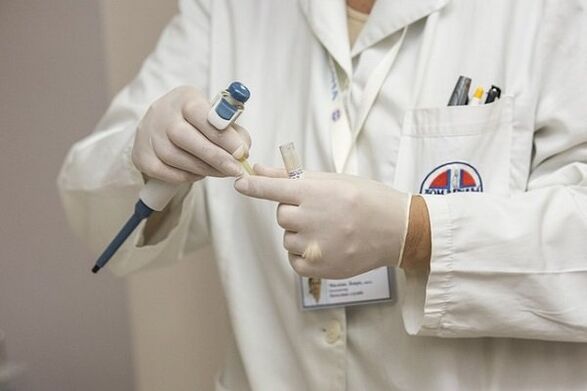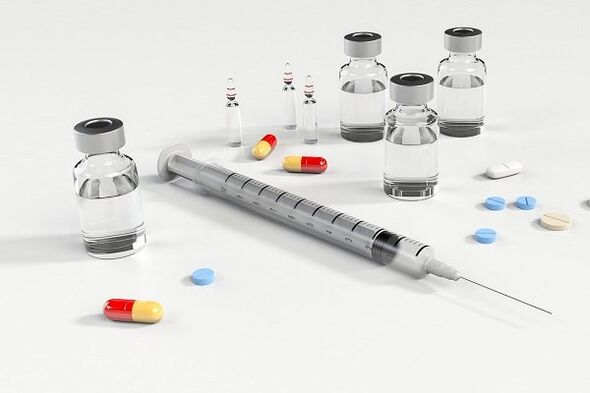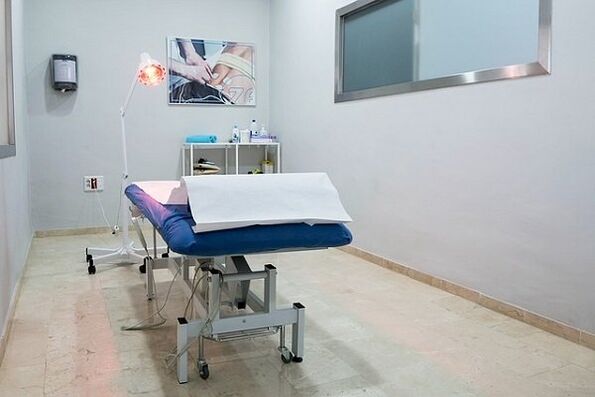
Prostatitis is an inflammatory disease of the prostate gland.The pathology occurs quite often, almost every second man after 60 years suffers from one or the other degree of prostatitis.The disease occurs against the background of degenerative changes in the prostate and can also be a result of the infection of the gland.
The inflammation of the prostate violates the quality of the patient's quality and provokes pain, erectile dysfunction and urinary incontinence.Prostatitis also increases the risk of adenoma and cancer.For this reason, all men are recommended to familiarize themselves with the symptoms of prostatitis and, if they appear, to contact the Andrologist immediately for further examination and prescription of the treatment.
The first signs of prostatitis
Which symptoms occur in prostatitis depends on its shape.The disease can be provoked by age -related changes or an infection, in particular by bacterial, viral or fungi infections.The symptoms in one case or another can differ.The severity of the manifestations of prostatitis also depends on the stage of the disease.
The first signs of inflammation of the prostate:
- Different types of problems with urinating: level of difficulty of urine, frequent pressures, urine releases, burns and pain.
- Pain in the groin area of different intensity.
- Pain during defecation.
- Pain during ejaculation.
- Erectile dysfunction to different degrees: fast ejaculation, inadequate stress of the penis, weakening of an erection during sexual intercourse.
Often nothing disturbs the patients and they turn to the doctor for examination due to infertility.Prostatitis worsens the quality of the sperm, so that a man with such a disease will most likely be unable to present a child.Thus, male infertility can also be attributed to one of the symptoms of prostatitis.
Treatment methods of prostatitis
Due to the symptoms alone, the treatment of prostatitis is not prescribed, since it is very important to understand what causes and eliminates the inflammatory process.If this is not done and the therapy starts blindly, it will most likely be ineffective.
The treatment of prostatitis is complex.During the agitation, the patient is recommended to give up sex and severe physical exertion.It is necessary to watch the bed rest, eat healthy and easily digestible food and to follow all the recommendations from the appealing doctor.

Drug treatment of prostatitis
The drug treatment of prostatitis is the basis of the therapeutic course.Think about which medication is prescribed for prostate inflammation.
Anti -inflammatory drugs relieve inflammation, pain and heat.
The spasmolytics eliminate the cramps of the smooth muscles and normalize the urine outflow.
Antibiotics are prescribed for bacterial infection.There are several groups of such medication:
- Penicillins;
- Fluorchinolone;
- Macrolids;
- Tetracycline;
- Cephalosporins;
- Aminoglycosides.
Which type of antibiotics are prescribed depends on the bacterium that provoked inflammation.It can be recognized by analysis of the tank from the prostate juice.
Alpha blockers normalize the drainage of urine and help to eliminate the symptoms of prostatitis.
The preparations are not only prescribed in the form of tablets and injections, often patients from prostatitis candles are recommended.They are anti -inflammatory, pain relievers, antitumor, etc. The advantage of prostatitis candles is that they act directly on the focus of the inflammation, which helps to quickly remove the manifestations of the pathology.
The use of vitamins and immunosimizing active ingredients is displayed in the complex treatment of the disease.They contribute to strengthening the immune system and accelerating the recovery of the patient.
Surgical treatment of prostatitis
If conservative therapy did not have the right effect or the patient went to the hospital in the advanced stage of the disease, surgical treatment of prostatitis may be necessary.There are two types of operations: part of the prostate and removal of the gland completely.
Both methods help to remove inflammatory herds, to save the patient from constant pain and difficulties in the urine.Depending on the neglect of the case, the operation can be carried out with an endoscope or a classic laparotomy method.
The operation is shown to patients who occurred against the background of prostatitis stones in the prostate, benign or malignant formations.In the latter case, it is shown that the removal of the prostate avoids a relapse of oncology and prevents tumor.

Physiotherapeutic treatment and massage
A great addition to drug therapy is therapeutic treatment, in particular the prostate massage and visiting physiotherapeutic methods.Both methods are shown after the end of an acute inflammatory process.During the period of the exacerbation of prostatitis, it is extremely not recommended to influence the prostate using physical methods.The massage will cause increased pain and edema of the gland, which only worsens the patient's condition.
After removing acute inflammation in the prostate and the elimination of pathogenic microflora, you can start physiotherapy, massage and physiotherapy exercises.These methods improve the outflow of prostate fluid and normalize the blood circulation in the pool, which reduces the risk of relapse to the disease.
In prostatitis, the following physiotherapeutic methods are possible:
- Electrical stimulation;
- Ultrasound treatment;
- Microwave therapy;
- Magnetotherapy;
- Laser therapy;
- Reflexotherapy etc.
The necessary method of therapy is recommended by the Andrologist's doctor depending on the condition of the patient and the need to maintain this or the effect during treatment.
Methodology for the treatment of chronic prostatitis
Chronic prostatitis is a serious pathology that is difficult to get rid of.The course of chronic prostatitis therapy is based on the following events:
- Drug treatment;
- Surgical intervention;
- Prostate massage and physiotherapy;
- Change of lifestyle;
- The use of homeopathic preparations in complex treatment.
During the worstening of the disease, treatment is carried out in a similar way to the therapy of acute prostatitis if there is an acute impaired urination, pain and infection therapy.The patient prescribes antibiotics, anti -inflammatory medication, anti -spas modos and other necessary medication.
During the remission period, it is very important to pay attention to the prevention of deterioration and complications of prostatitis.For this purpose, doctors give the following recommendations to which life must follow:
- Regularly examined and undercut an antibiotic prescribed by a doctor.
- Avoid vitamin deficiency, obesity, exhaustion.
- Tighten up warmth, do not stay in a cold and damp room for long.
- Perform physiotherapy exercises every day and carry out the muscles of the abdomen and pelvic floor on the muscles of the floor.
- Have sex regularly (preferably every 3 days), so that there are no stagnating processes in the prostate and the testicles.
- Smoke or don't drink alcohol.Bad habits provoke vascular spasm, disrupt the blood flow to the entire organism, which is a provocateur of prostatitis relapse, the blood flow to the entire organism.
When treating chronic prostatitis, the use of homeopathic remedies is possible.Patients are often recommended to use rectal candles with sea fire, propolis, with Belladon and other plant and animal components.In addition to candles, it will be useful to carry out a microclyster with herbal shots.
During the remission period, the patients are mandatory a prostate massage.This therapy method helps to improve blood circulation to prevent the drainage of prostate juice and prevention of the disease.
Diploma
Prostatitis is not an inevitable sign of the aging of a man, this pathology is successfully eliminated if the patient has been immediately undergoing examination and adequate therapy.If symptoms of prostatitis occur, the treatment should start immediately under the control of a competent andrologist.The earlier the patient consults a doctor, the easier it becomes to get rid of the inflammatory process.





















